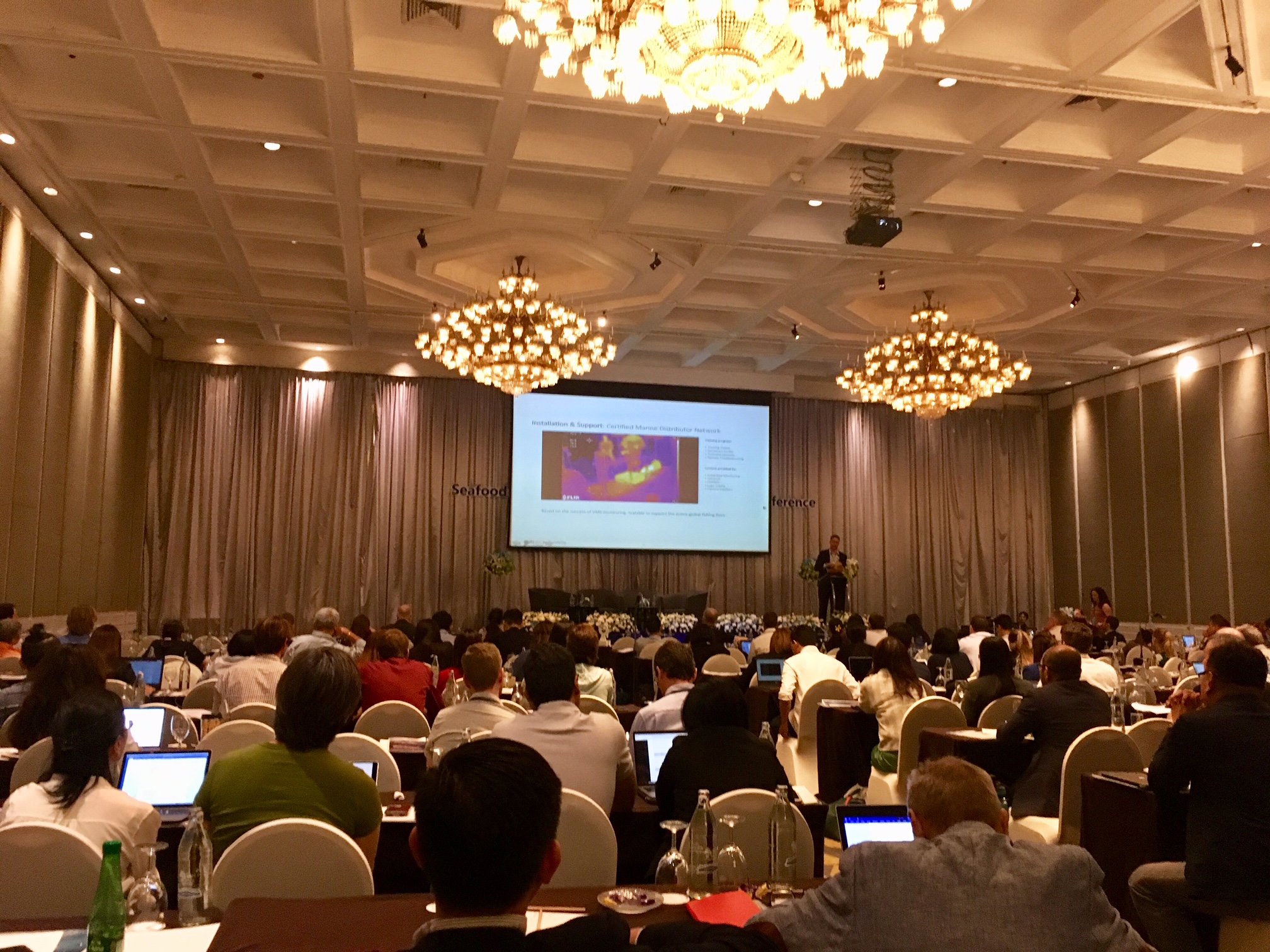Like two years ago in Auckland, the people that works around the world on MCS (Monitoring, Control and Surveillance- which are the mechanism for implementation of agreed policies, plans or strategies for fisheries management).get together to a big jamboree were all share what are we doing and connect a personal level.
I’m not at all a meeting guy, but this one is quite specific and you get to catch up with people that actually know what you do.
In my case is again an almost overwhelming experience… I had 42 people coming yesterday to say how much the enjoy this blog and the pictures I make… totally humbling! My biggest thank you to you all!!
Furthermore, I still surprised that with my background, I genuinely enjoy being in place where I’m pretty much the only fisherman surrounded by tons of fisheries inspector without having a hearth attack.
The jamboree works in two separate meetings:
The Seafood and Fisheries Emerging Technologies Conference (SAFET)
This is the baby from my friend Bubba Cook, which has been a great supported of my blog and my work, so is great to see so many people attending, and lot of good talks going on.
The SAFET started with a modest vision to explore and discover the potential of emerging, and potentially disruptive, technologies that could be applied to improve the conservation and management of our world's fisheries. The Goals of the SAFET Conference are:
Improve and clarify the understanding of the existing MCS and supply chain traceability environment.
Objectively review emerging and advancing technologies that might contribute to less expensive and more efficient MCS and supply chain traceability.
Advance future implementation of innovative emerging technologies in MCS and supply chain traceability applications where appropriate.
Check the list of task here, I’m not a speaker this time (but I took my job as question maker very seriously) but I’m moderator and speaker at a half day PEW Fundation supported workshop called “Effective MCS” and we will be dealing with some key aspects:
Availability and accessibility of technology/data – scale and scope of coverage, timeliness of data, ease of implementation, effectiveness of technology and affordability / cost?
Path to conviction – how can technology help?
Impacts to legal fishing – how does IUU impact legal fishing efforts, and how can technology help incentivize or encourage other fishers to operate legally.
And I would be doing this with some very clever crew: Per Erik Bergh from Stop Illegal Fishing, my mate Vivian Fernandez from FFA and Deon Burger form Interpol
So very much looking forwards to this.
The 2nd event starting next week is the:
6th Global Fisheries Enforcement Training Workshop
The theme for this edition is ‘CLOSING THE NET: Global cooperation between flag, coastal, port and market States for effective enforcement of international and domestic law.’
The GFETW is a biennial conference organized by the International MCS Network to improve and enhance capacity to enforce fisheries legislation and exchange of information and experience between MCS practitioners around the world. Sustainable fisheries can only be achieved when fishing is pursued in compliance with the applicable rules and, therefore, all fishing activities in the world’s oceans and seas should be subject to adequate levels of monitoring, surveillance, inspection and enforcement.
For decades, globalization, modern technologies and demand for fishery products have placed increasing pressure on global marine living resources. Efforts to sustainably manage existing fish stocks are continuously undermined by enterprises engaged in IUU fishing. The pervasive trend of IUU fishing carries negative consequences not only for legal operators but also for the livelihoods and cultures of coastal communities dependent on fisheries and for food security. Furthermore, IUU fishing may be associated with other crimes undermining for example international labor standards.
The annual costs derived from IUU fishing activities globally has been estimated to range between USD 10 – 23.5 billion. IUU fishing undermines sustainable exploitation of fish stocks, in some cases, to the point where stocks are depleted, the ecosystem is irreversibly damaged and conservation of some species threatened. The International MCS Network supports efforts to build a culture of compliance among stakeholders and a level playing field for operators to the effect that only sustainably harvested and legal fish and fisheries products reach the consumer.
On this one I’ll be a speaker and presenting on what we are doing in Majuro and will be expanding on the details on my next blog.
But yes, even if the thinkers and “leaders” are here… most of the MCS practitioners I work with on daily basis are not here, they are in the wharves of the world doing the vital part of this work, while earning per month less of what we pay for our hotel this week. Please keep them in mind, because they are the real heroes in this job.
